The overwhelming majority of WWDC attendees continues to be male, but Apple its stepping up its own efforts to encourage more women— starting with young girls— to take prominent roles in tech. That included prominent stage time for female executives in leadership roles, and the featuring of GoldieBlox, an effort to interest girls in engineering careers, starting early on in the toy isle.
For years, Apple's WWDC Keynotes were largely presented by one person: Steve Jobs. As his health faltered, Jobs' presentations increasingly introduced less well-known members of his executive team, culminating in todays' keynotes delivered by a stream of individuals, virtually all of whom historically happened to be men.
This year, Apple's Keynote delegated two strategic product announcements to women: Jennifer Bailey, Apple's vice president of worldwide online stores (below), introduced new Apple Pay features, while Susan Prescott, vice president product management and marketing, detailed the debut of Apple News.
Additionally, a large number of WWDC sessions throughout the week were presented by female engineers, reflecting the fact that Apple's percentage of women in tech-related positions is higher than many of the company's peers in Silicon Valley or the tech industry in general.
However, Apple's chief executive Tim Cook has articulated that the company still has much work ahead of it in seeking to recruit future generations of employees and ecosystem partners from anywhere talent, ambition and creativity can be found.
It's not just future generations of girls that are joining Apple in its efforts to represent diversity in its ecosystem. On its WWDC Keynote web site, Apple featured Alicia C., a developer who learned to code at the age of 51, and who now has an app to help victims of abuse.
Cook pursues a diverse future for Apple
Asked by Mashable senior tech correspondent Christina Warren why Apple thinks its important to pursue diversity— particularly among the young scholarship winners the company invited to its conference— Cook answered, "It's the future of our company."
He added, "I view these people that I talk to today as the future generations of the company, and they will either be a part of it directly or a part of the ecosystem. And either way, when I think of Apple, I think of the whole community not just the people that have the Apple badge."
Cook also said that diversity has made Apple a "better company," noting, "I think the most diverse group will produce the best product. I firmly believe that."I think the most diverse group will produce the best product. - Tim Cook
While its easy to dismiss the lack of women in tech as being an issue of gender-based, self-selected disinterest, Cook said, "I think it's our fault— 'our' meaning the whole tech community. I think in general we haven't done enough to reach out and show young women that it's cool to do it and how much fun it can be."
Cook's proactive efforts to pursue diversity as his company scouts for new employees is an ongoing effort. The barrier to inviting more women and minorities into roles in tech is not "lunatic fringe people," Cook stated, but rather, "the problem, as Dr. King said, is 'the appalling silence of the good people.'"
Cook explained that speaking out about the lack of diversity in tech can be hard, "because society unfortunately rewards the 'keep your head down approach,' but doing that won't move anything forward. It's not going to move the country forward, industries forward or companies forward. You don't solve diversity like that."
To actively incite change, Apple has pursued and funded partnerships with initiatives to shift the status quo, including the National Center for Women & Information Technology. The group's Aspirations in Computing runs a "talent development program that identifies and supports young women pursuing computing and technology disciplines," and Apple awarded nine of its members a scholarship to attend WWDC this year.
The youngest scholarship winner this year was 12, as recognized by Cook in his Keynote introduction. BuzzFeed Video published the segment "Code like a Girl," following several young scholars at this year's WWDC.
Think Audacious
In a lunchtime WWDC presentation delivered on Wednesday, entrepreneur Debbie Sterling outlined her own personal history as a women in tech, starting out as young girl who was encouraged by a female mentor to pursue a degree in mechanical engineering at Stanford University, a path she said she probably wouldn't even have otherwise considered.
After establishing a comfortable job in her field— while observing the clear reality of how women are greatly outnumbered in STEM (science, technology, engineering and math) occupations— Sterling described her personal obsession in disrupting the cultural programming of the "pink isle" for girls among kids toys, where boys are encouraged to design and build things, while girls are given toys that often focus on personal appearance and glamor.
Debbie Sterling: 'what if instead of telling a girl she looks beautiful, you tell her she looks capable?' #goldieblox #wwdc #engineering
— Daniel Eran Dilger (@DanielEran) June 10, 2015She took a year off to devote her savings toward the quest of developing a line of toys that could appeal to girls, while sparking their interest in development and engineering tasks.
After being repeatedly told that her idea wouldn't sell, and finding little initial interest among toy buyers, Sterling described her efforts in finding likeminded individuals to collaborate with, who subsequently worked with her to develop a compelling Kickstarter for "GoldieBlox," a concept that encourages girls to solve engineering tasks as part of an captivating story.
Benefitting from a series of lucky breaks— many occurring under the concept Sterling called "making your own luck," or tenaciously taking the initiative to make things happen— GoldieBlox toys have found their way into over 6,000 retailers worldwide with the backing of a variety of prominent people who wanted toys like that for their own daughters.
GoldieBlox has also found its way into the virtual world with the iOS App Store title GoldieBlox and the Movie Machine, which enables girls (or anyone, really) to build a project that combines assembling a zoetrope for displaying animations with the art tools for creating simple, one-second animations that can be printed out, cut into frames and presented with the illusion of animated motion on the device.
 Daniel Eran Dilger
Daniel Eran Dilger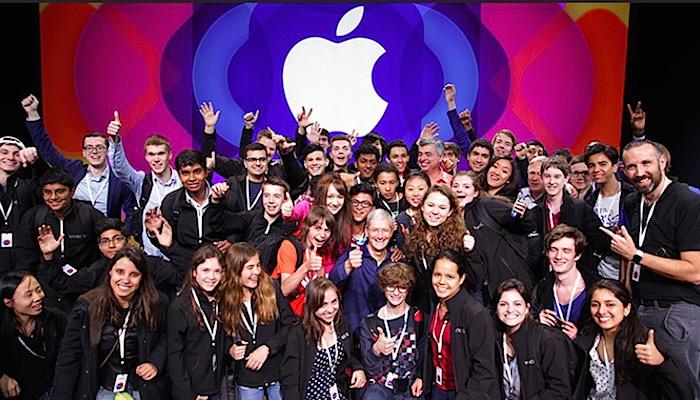
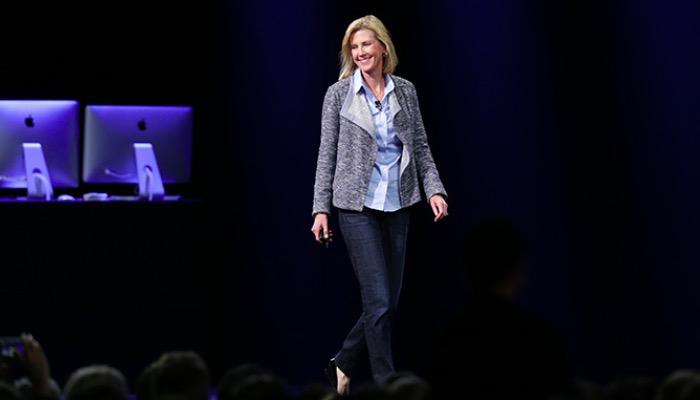
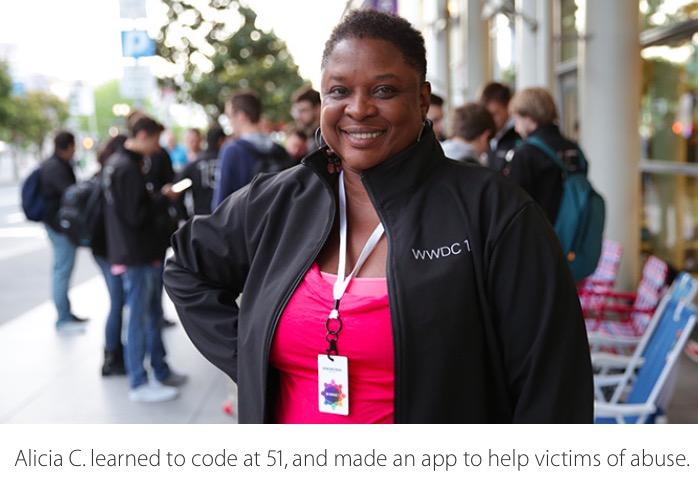
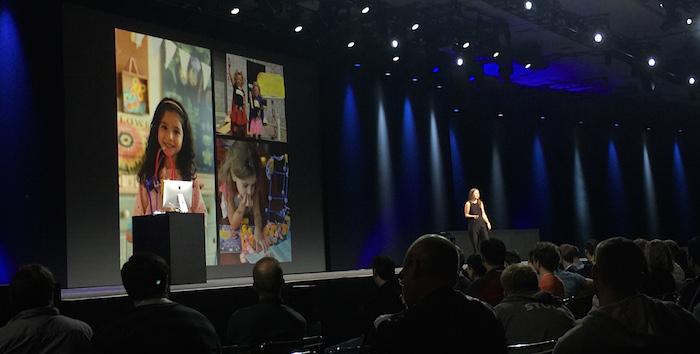




-xl-m.jpg)


-m.jpg)






 Chip Loder
Chip Loder
 Thomas Sibilly
Thomas Sibilly
 Wesley Hilliard
Wesley Hilliard
 Christine McKee
Christine McKee
 Amber Neely
Amber Neely
 William Gallagher
William Gallagher
 Malcolm Owen
Malcolm Owen

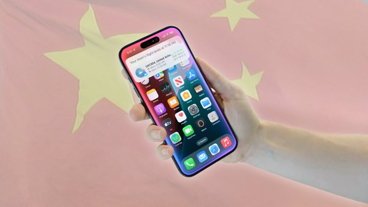







40 Comments
Why don't we just let girls be girls and boys be boys and choose whatever naturally interests them. Instead of trying to political correctly push people into what we want because we in our enlightened state think it is unfair that girls don't act like boys.
Today, and for now, "invite girls" Down the road, "invite women". ....but not yet, or today. Too soon.
So what, girls need a 'captivating story' so they're interested? Sounds sexist to me. I guess girls don't possess imagination or something.
GoldieBlox is a lousy company whose management does whatever they want, I don't think Apple should associate with them. They stole a song they didn't have permission for, were told to knock it off, and then they pre-emptively sued the people who owned the rights?
As for the utility of these toys: http://www.huffingtonpost.com/jamie-davis-smith/getting-over-goldie-blox_b_3652553.html
We keep being told that we should let people be who they are, yet there are a lot of women and girls being told they can't be what they want to be, because 'equality' or something.
And I can't believe I'm not only linking to a HuffPo story, but two: http://www.huffingtonpost.com/lisa-abeyta/when-did-we-let-princess-become-a-bad-word_b_5310586.html
Stop the pandering. I highly doubt Apple was turning minorities and women away. Quotas don't work.
just to be clear, that's girls, not women.
Others might suspect something a bit more devious is going on here. At this moment, software development is one of the best paying middle-class occupations in this country. The executives for companies such as Apple and Google are less than happy about that. The more developers get, the less they get. There's abundant evidence that's how they think. One illustration was that illegal anti-poaching agreement involving Apple, Google and others. Their motive was obvious. Competing would mean higher wages. Another illustration is their corporate zeal to bring in foreign workers or (as recently with Disney), to send jobs offshore where the wages are a fraction of our own. In short, if you're a software developer, whatever your sex, you've had ample evidence in recent years that the executives of Big Tech are not your friends. Their deeds have spoken all too loudly. These isn't their first or second attempt to drive down your wages. This is their third move to do that. They have now moved that strategy into a third arena, one that looks more politically correct than illegal anti-poaching agreements or shipping jobs overseas does. Keep in mind that the corporate world regards it as a truism that women as more likely to work for lower wages than men. You can argue whether that's true. It matters not. What matters is that it is regarded as true among corporate executives. When they want more women in software development, they're actually thinking, "This will force wages down and create a more compliant workforce." They can't help it. It's hardwired into how these people think. Like I said, they're not your friends. Their friends have lots of money. I cannot stress enough that the issue isn't whether it's true that women software developers will work for less than their male colleagues. What matters is that these executives regard that as true. They've made two moves to drive the wages of software developers down. This is their third move. Nor does the presence of highly visible women on stage mean anything. Loyalty to one's sex is a myth. Women executives can be as eager to force down the wages of women software developers as their male colleagues are of those of male developers. They're both driven by the same motivation%u2014greed. There's an old adage, "Fool me once, shame on you. Fool me twice, shame on me." This is Big Tech's third attempt to pull one over on software developers, both men and women. Don't fall for it. Encourage the women you know who go into software development to fight hard for high wages and put an end to that corporate truism. While you're at it, come up with some clever strategies to keep your jobs from being shipped overseas. This is the future we are talking about. It matters.